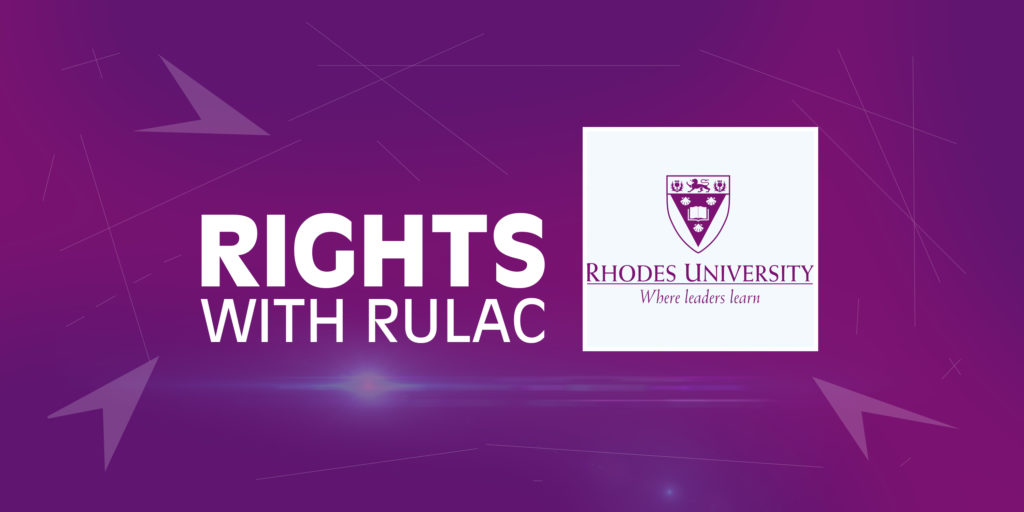By SIYA MAKUNGA, Rhodes University Law Clinic
In our previous article, we introduced the National Credit Act (NCA), the reasons for its enactment, and the purpose of the Act. Since the NCA is specifically applicable to credit agreements, it is important to define a “credit agreement”.
An agreement is a credit agreement if it provides for a deferral or delay of payment and if there is a fee or interest charged for the deferred payment. The NCA does not require that a credit agreement must be in writing and signed by both parties to the agreement, although this is implied throughout the Act.
A credit agreement can be (i) a credit facility; (ii) a credit transaction; (iii) a credit guarantee; or (iv) an incidental credit agreement. Below, each of these types of credit agreement is defined and illustrated with examples.
Credit facility
A credit facility is an agreement in which a credit provider supplies goods or services or pays an amount determined by the consumer. The consumer’s obligation to pay the price or repay the money is deferred, in exchange for which the consumer pays the principal amount, interest, and fees incurred on the amount at a later stage.
Siwe has a credit card registered with SA Bank. When she swipes the credit card at the supermarket for R500, SA Bank will pay R500 immediately to the supermarket. Siwe is obliged to pay SA Bank the initial amount of R500, interest incurred on the amount, and the fees for using the credit card in the future. Siwe will either pay the outstanding amount as a whole or in monthly instalments.
Credit transaction
A credit transaction can be any one of several different types of transactions:
- Instalment agreements, in terms of which movable goods (e.g. furniture, clothing or a car) are sold, and the item is delivered to the consumer. The consumer is liable to pay the original price of the item plus interest and fees charged. The consumer becomes owner only once all instalments have been paid.
- Unsecured money loans are usually smaller money loans repayable in instalments, where the lender is given no security for re-payment of the debt (e.g. a small personal loan, commonly known as a micro-loan, or a small study loan).
- Pawn transactions, where a borrower transfers a personal item to the lender (e.g. a bracelet) in exchange for money. If the borrower fails to pay the debt, the lender can sell the bracelet and keep the proceeds from the sale.
- Mortgage agreements, which are money loans secured by the registration of a mortgage bond in favour of the credit provider. The loan amount is used to buy immovable property.
- A “financial lease” of personal property such as a printer or car. The rent is paid in instalments, together with fees and interest. (If interest and fees are not charged, it will not be a credit transaction in terms of the NCA.) The total instalments will usually amount to the value of the item. Once all instalments are paid, ownership passes to the consumer. A financial lease is therefore a form of extended purchase agreement, and is not a lease in the traditional sense (an operating lease, e.g. of a home to live in, where ownership does not pass at the end of the contract.)
- Secured loans. If Milo obtains a loan from SA Bank, he may pledge his car as security for the repayment of the loan. Should Milo fail to repay the loan, SA Bank has the right to sell the car to settle the outstanding debt.
Credit guarantee
A credit guarantee is where another person agrees to pay to a creditor the amount due by a consumer on demand. The most common example is a suretyship agreement, in terms of which personal security is provided by a third party for the debt of the consumer (e.g. resulting from an overdrawn cheque account.)
Incidental credit agreement
In addition to the primary three forms of credit agreement is an incidental credit agreement. This occurs when goods or services are provided to a consumer over a period, and a fee or interest is charged only if payment is not made by an agreed date. For example, you buy shoes from a clothing store on account. If payment is made within six months, you will only pay the original price; but you will incur interest on the outstanding amount once six months have passed.
Before a consumer enters into an agreement, it is essential to ascertain whether the agreement is classified as a credit agreement as defined in the NCA. This is so because if you are party to a credit agreement, you are afforded certain forms of protection by the NCA. These matters will be investigated in the articles to appear in the coming months.


